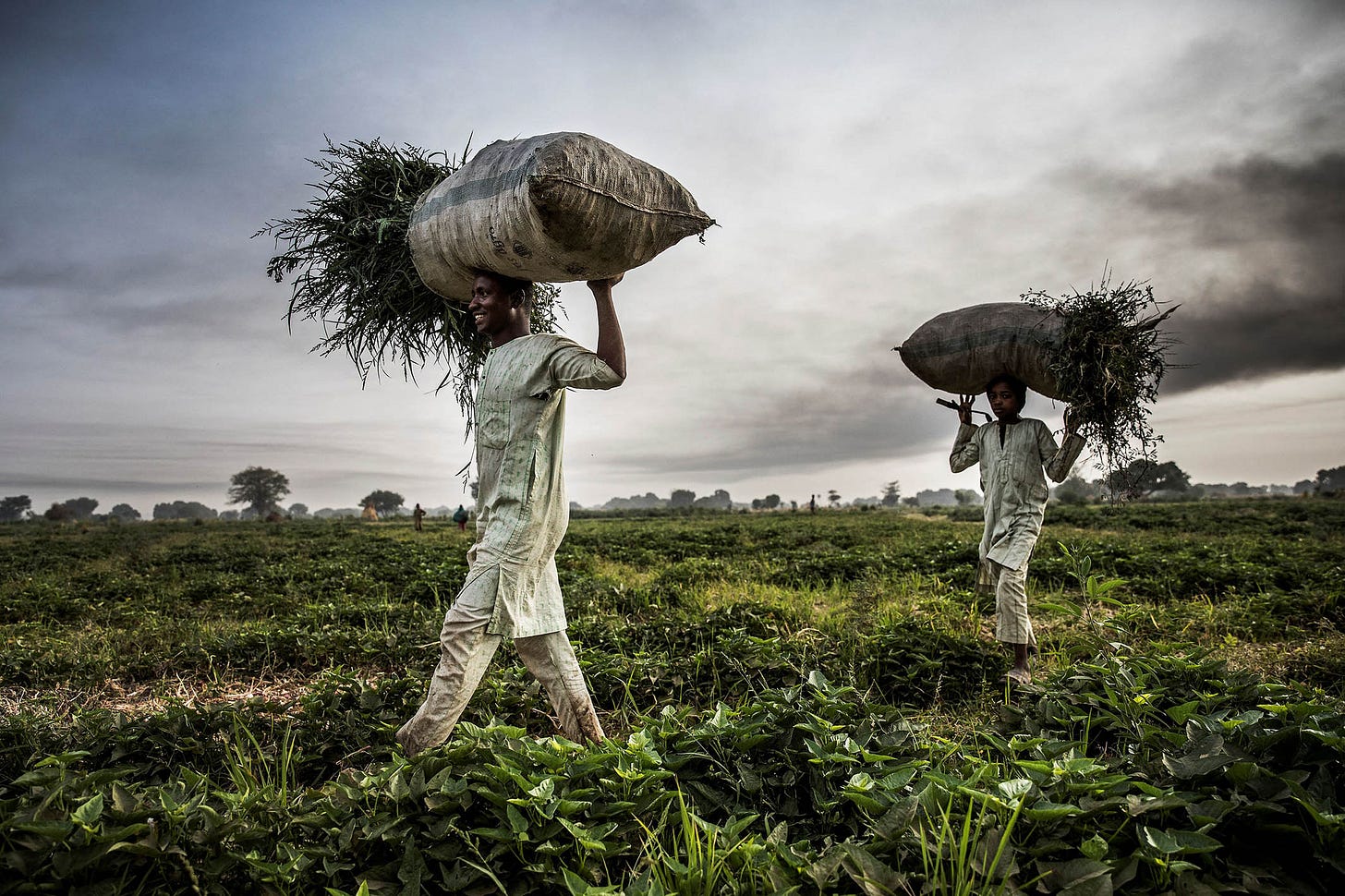Remembering the past to feed the present
Individually and through collectives, young Nigerians are bringing their DIY energy to the food-price crisis.
Damilola Adeyera

Some young Nigerians are returning to farming even as they pursue their education in other fields.
One of these is Adeyemi Aderinola. At the back of his university hostel is a small plot of land the university allows him to farm. Each day, the engineering student at Obafemi Awolowo University rises before dawn to weed around his yam heaps before heading to class. He negotiated for the plot through an association of 143 student farmers which he leads.
Funmilayo Bakare, a microbiology student, is a member of the same collective and was also allocated a plot, on which she grows cassava, potatoes, maize and other crops.
The collective, United Small Scale Farmers Association of Nigeria, was founded by the late academic Makanjuola Arigbede, who wanted to see more Nigerian youth take up agriculture. He often argued that, before the discovery of oil, farming was the backbone of Nigeria’s economy – but petro-dollars led authorities to neglect other sectors, including agriculture.
That neglect is biting now.
Nigeria is experiencing its worst-ever bout of food inflation and, globally, is the country with the largest number of food insecure people, according to the United Nations Food and Agriculture Organisation.
In its May report, the national statistics office put food price inflation at a record high of nearly 41%. “We are just reaping what we’ve sown in the past few years,” said Idris Badiru, a lecturer at the University of Ibadan. He sees the current food crisis as the cumulative effect of too little attention being paid to agriculture over the years.
Badiru said Nigerian policy had long been indecisive on whether or not to protect the agricultural sector and that climate change, insecurity in the foodproducing areas, and higher import costs had exacerbated the situation, driving food inflation to the current record highs.
Young people who are taking up farming are hoping they are part of the solution. Bakare, the microbiology student by day and farmer by spare time, said she got into it partly because of how much food prices have been rising. “It was just me wanting to make it easier for people to get farm produce.”
More collectives like theirs are cropping up: Ekiti Youth in Urban Farming was established last August and gives young people plots to farm, in addition to training on vegetable growing, hydroponics, organic farming and aquaponics.
“Our experience has been remarkable, with over 60 members and still growing. Nigerian youths are increasingly showing interest in farming,” Adetunji Ifeoluwa, who heads the Ekiti collective, told The Continent.
The collective receives support from the local Ekiti state government, the Mastercard Foundation, and Soilless Farm Lab, a social enterprise that says it has trained 13,700 people on smart ways to farm.
Other young people are taking up farming without necessarily joining collectives.
Ishola Joseph, a student at the University of Ilorin, said he started growing rice when it became too expensive to buy in the market.
Deborah Oke, another student there, said she is doing it for extra-curricular knowledge and to earn some money. She grows maize and sorghum and believes every household should grow something “especially fruits and vegetables”.
She urged the Nigerian state to expand these individual attempts at solving the food crisis by emulating the collectives through “allocation of free land, giving out free seeds and fertilisers. If not free, then at reduced prices”.



